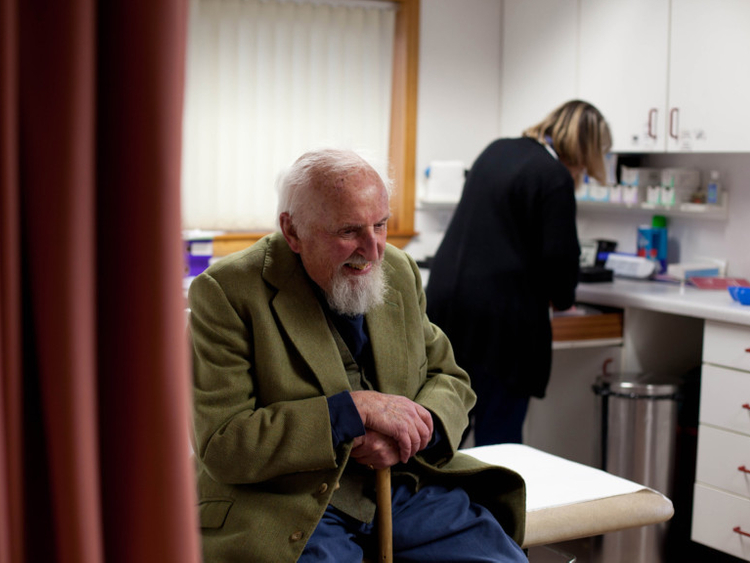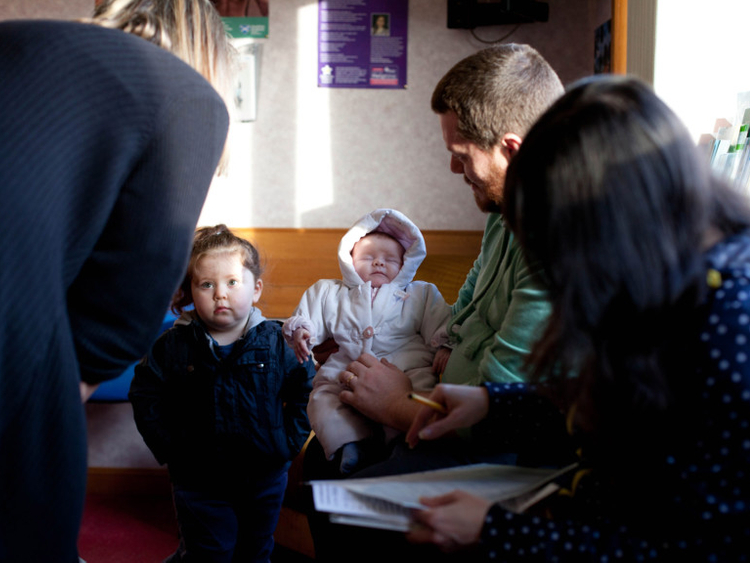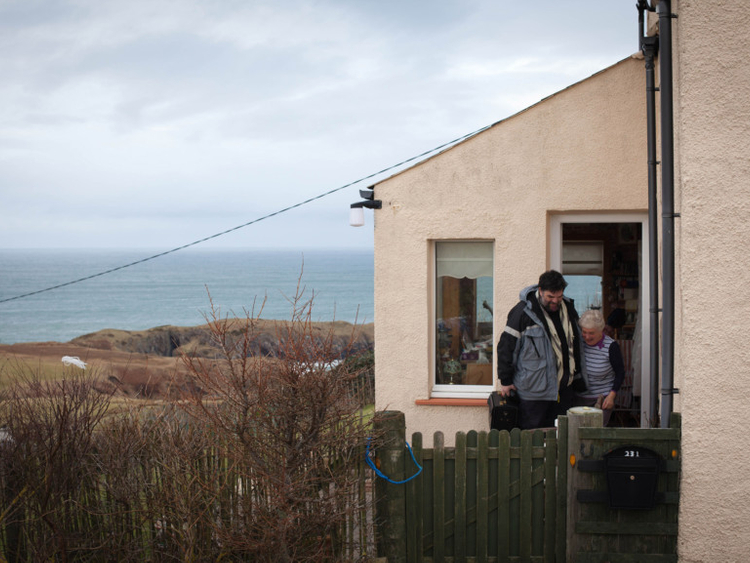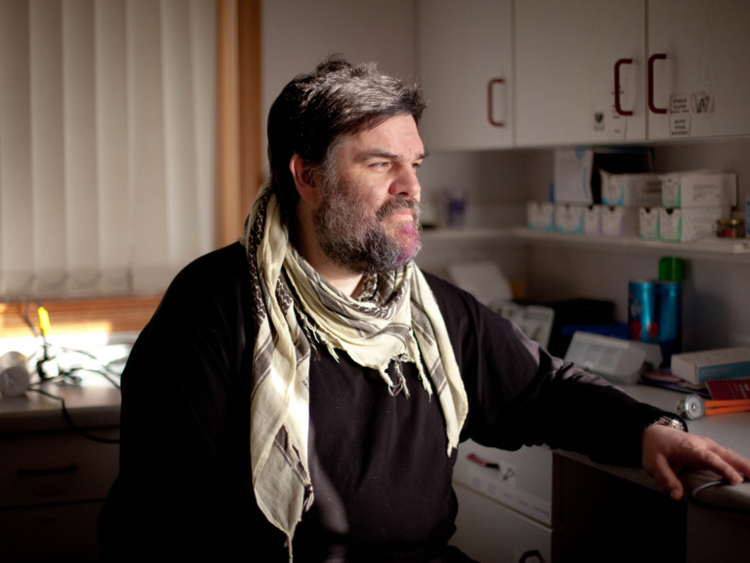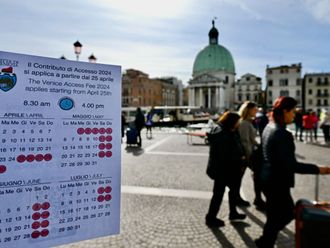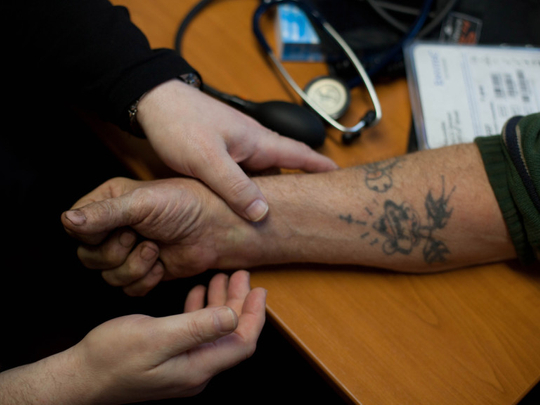
BETTYHILL
From his wind-scoured bungalow, Andreas Herfurt overlooks the village cemetery, an end place in his line of work. For almost 20 years, the German has served as the town doctor here in the woolly wilds on the north coast of Scotland.
“Those are not just my former patients,” Herfurt said of the graves surrounding the old church. “They are my neighbours and my friends. I have learnt the hard way the whole truth about cradle-to-grave medical care.”
Herfurt is the National Health Service’s family physician for 850 souls in a 400-square-mile rural practice. This is a place where the cosy village watering hole — the Farr Bay Inn — has a public room the size of a walk-in closet, the only restaurant option in winter is a fish-and-chips shop, and sheep outnumber humans by thousands to one.
Herfurt, 53, who never became a British citizen, says he has loved his life in the NHS, the United Kingdom’s much-admired, oft-derided, state-run universal health-care system. He has made decent money, by European standards. And he digs living in the middle of nowhere, with his Scottish wife and their big, slobbery dog.
“But I don’t know how much longer we will stay,” he said recently, taking a break at his clinic in Armadale. “In the simplest, most emotional terms, because I am human, I wonder: Am I wanted?” he said.
There are others too
The German doctor is not alone in such feelings — which could spell disaster for the British health service.
Like Herfurt, many of his European colleagues in the NHS say they were stunned by Brexit, the vote by Britain to leave the European Union. The exit, which was not backed by most voters in Scotland or Northern Ireland, is scheduled for March 2019.
As a boy growing up in Majorca, Spain, Carlos Hoyos remembers being fascinated by British inventors. England embraced openness, he believed. When he visited London as a teenager, something clicked: “I thought, ‘This is where I want to live.’ “
It has now been 27 years since Hoyos moved to the UK. He lives with his British wife and their two teenage daughters in Southampton, on England’s south coast, where he works for the NHS as a child and adolescent psychiatrist.
“It’s emotional that these people I have admired all this time actually don’t want me here,” Hoyos said. “It’s a sense of rejection.”
‘I am a dinosaur’
Herfurt has continued his usual house calls, his visits to elder-care residences. He said, “I am a dinosaur,” and added with a flash of frustration, “Good luck finding my replacement” — someone who will work long hours in a remote rural practice.
If he stays, it will be because of his patients.
For 19 years, he has spent his days here giving howling 6-week-old babies their first check-ups; seeing snotty-nosed kids through childhood vaccines; helping mums with pregnancies — then shepherding the older folks through the middle and final years of heart disease, diabetes, cancer and dementia to death.
“It has been a privilege to practice this kind of medicine,” Herfurt said.
Annie Hall, one of his patients, shook her head and said, “No, no, no!” when asked what she thought about Herfurt leaving. “He can’t go,” she said. “He’s a local, almost.”
The European doctors and nurses noted that when they came to work here, they were Europeans coming to a member state of the EU. They didn’t see themselves as “immigrants.” They were Europeans exercising their right to free movement in Europe, they were wooed by the NHS.
Many never sought British citizenship because they didn’t have to. They assumed they could spend their careers, their whole lives, in the UK.
But they are taking Brexit personally, expressing indignation at the prospect of having to be vetted in post-Brexit Britain. Many said they would refuse to stand in line for a work visa or submit to a criminal-background check — not after years of overseeing life-and-death decisions and emptying bedpans for British patients.
— Washington Post
BOX
In a survey at the end of last year, the British Medical Association discovered that almost half of the European doctors working in Britain were considering leaving following the Brexit vote, and that nearly 1 in 5 were taking concrete steps - selling homes, looking for jobs.
The NHS has buckled under the strain during the current flu season, with hospital corridors crowded with gurneys and 12-hour waits in emergency rooms. Heart and cancer surgeries have been postponed.
This month, Parliament published new statistics on NHS staff from overseas, revealing that in Britain, about 139,000 - or 12.5 percent of NHS staff - are from Europe and elsewhere. Europeans dominate in the most skilled jobs. About 10 percent of doctors and 7 percent of nurses are European nationals.
The study did not publish figures for Scotland, Wales or Northern Ireland because of differences in reporting, but health experts say the numbers are similar to England’s.
Harry Quilter-Pinner, a research fellow at the Institute for Public Policy Research in London, said, “The influx of workers from the EU are vital to keeping the show on the road.”
He added: “If the government said, ‘OK, let’s train up new doctors,’ you wouldn’t get any payoff for 10 years. The only way to fill that gap is through immigration.”
The problem, said Siva Anandaciva, chief analyst for the King’s Fund, an independent health-care think tank, is “the worrying trends emerging that show these staff no longer want to work in the U.K.”
He pointed to sharp declines in the numbers of European nurses and midwives coming to Britain at a time when the country needs to hire tens of thousands of nurses.
The NHS faces crisis-level staff shortages and relies heavily on Europeans to do the jobs that British nationals either can’t or won’t do.
If Brexit was driven by strong emotions, so is the reaction to it by some European doctors and nurses in the NHS.
In interviews, several of those who are thinking about leaving didn’t point to overt acts of xenophobia. They acknowledged that nobody is kicking them out of the country.
If the European medical workers do exit in large numbers, they will be missed.
The Washington Post.


